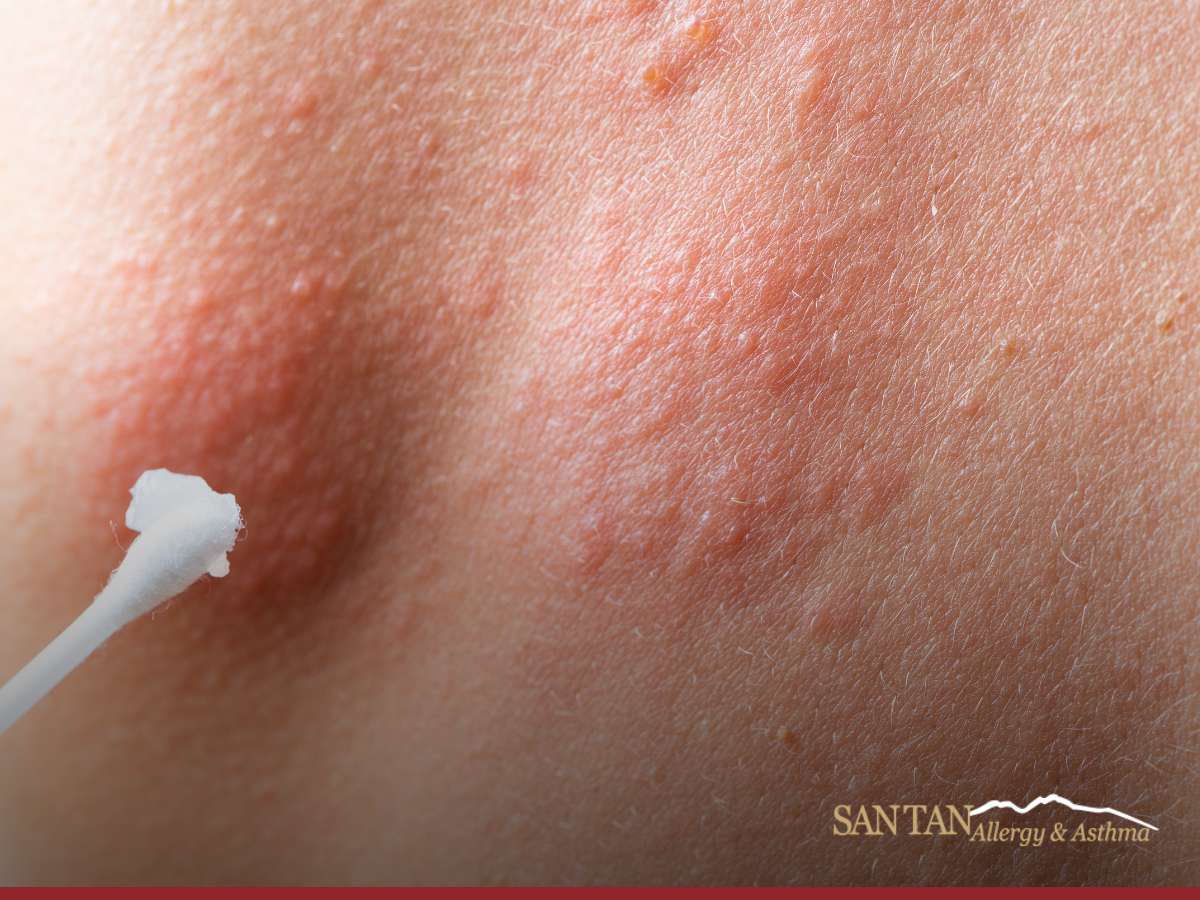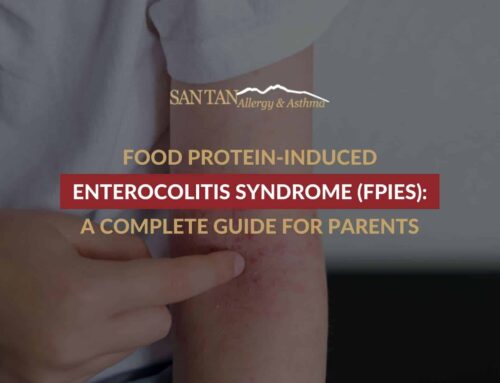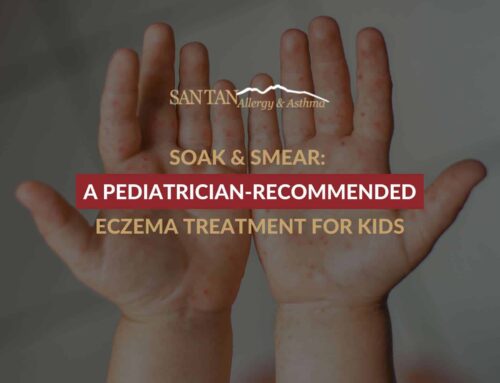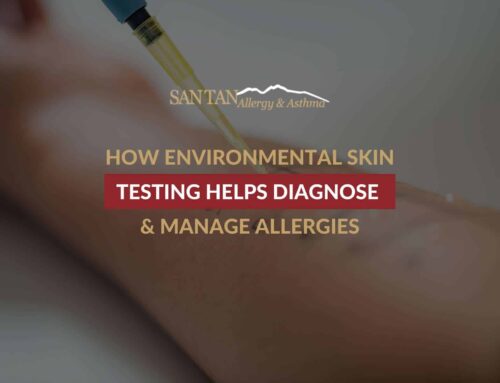Insights On Managing & Preventing Hives For Lasting Skin Health
Dealing with hives can be incredibly frustrating. Those itchy, raised welts seemingly appear out of nowhere, disrupting your daily life and leaving you searching for answers.
But fear not! In this article, we’re here to help you understand how to treat and prevent recurring hives on your skin, and we’ve enlisted the expertise of a Gilbert allergy expert to guide you through this journey with care.
Whether you’re a long-time sufferer or new to the world of hives, this guide will equip you with the knowledge and strategies needed to regain control over your skin health and overall well-being.

What Are Hives & Why Do They Happen?
Hives, also known as urticaria, are a skin condition characterized by the sudden appearance of itchy, raised, and often red welts or wheals. They can vary in size and shape and may come and go over hours to days. Hives can occur anywhere on the body and can be uncomfortable and distressing for those who experience them.
What Causes Hives?
Hives happen when your body’s immune system responds to a trigger, releasing histamines and other chemicals into the bloodstream. These chemicals cause blood vessels to leak, leading to swelling and redness.
The exact cause of hives can be challenging to pinpoint, but they are typically triggered by one or more of the following factors:
- Allergens: Allergic reactions are a common cause of hives. Exposure to allergens like certain foods, medications, insect stings, or pollen can lead to hives in susceptible people. For these cases, getting an allergy test is crucial.
- Medications: Some medications, especially antibiotics, non-steroidal anti-inflammatory drugs (NSAIDs), and certain pain relievers, can trigger hives as an adverse reaction.
- Infections: Viral or bacterial infections can sometimes lead to hives. In these cases, hives may be the body’s response to the infection or a medication used to treat it.
- Physical Triggers: Some people experience hives due to physical factors such as heat, cold, pressure, or friction on the skin.
- Stress and Emotional Factors: Emotional stress and anxiety can sometimes lead to hives. This might be related to the body’s stress response, which can trigger the release of histamines.
- Underlying Health Conditions: Certain underlying medical conditions, such as autoimmune diseases, thyroid disorders, or chronic infections, may be associated with chronic hives.
- Unknown Causes: In many cases, the exact cause of hives remains unknown. These are called “idiopathic hives”.
It’s important to note that hives can vary in severity. Some people may experience a mild outbreak that goes away on its own, while others may have a more severe and chronic form of the condition.
If you frequently experience hives or have difficulty identifying the cause, it’s best to consult a healthcare professional or an allergy expert for proper diagnosis and treatment.
Comprehensive Treatment Approaches For Hives: From Antihistamines To Natural Remedies
The choice of treatment depends on the severity and duration of the hives, as well as the underlying cause. Here are some of them:
- Antihistamines: These medications block histamine, reducing itching and swelling. Over-the-counter options like Zyrtec or Claritin work for mild cases, while prescription antihistamines may be needed for severe hives.
- Topical Steroids: Creams or ointments with corticosteroids can help reduce itching and inflammation when applied directly to the skin.
- Oral Steroids: In severe cases, doctors may prescribe oral corticosteroids like prednisone to control hives, but these are used for short periods due to potential side effects.
- Immune Suppressants: Medications like cyclosporine may be considered when antihistamines and steroids don’t work, as they help regulate the immune response.
- Epinephrine: In rare severe allergic reactions, epinephrine via an EpiPen can quickly counteract hives and prevent emergencies.
- Natural Remedies: Oatmeal baths and aloe vera gel may offer some soothing relief, but they aren’t a substitute for medical treatment.
- Lifestyle Changes: Avoiding triggers, managing stress, maintaining a healthy diet, and staying hydrated can help prevent hives.
- Allergy Testing: Skin tests or blood tests can identify allergens triggering hives, allowing for allergen avoidance or immunotherapy.
- Consulting Gilbert Allergy Expert: Seek guidance from an allergy specialist for a thorough evaluation, allergy testing, and personalized treatment plans tailored to your needs.
Proactive Steps To Prevent Chronic Hives & Reduce Recurrence
Chronic hives (chronic urticaria) are long-lasting hives that persist for six weeks or more. Unlike acute hives, which typically resolve within a few days to weeks, chronic hives can last months or even years.
Preventing chronic hives can be challenging, especially when the underlying cause isn’t clear. However, here are some steps you can take to help prevent or manage them:
- Identify Triggers: Work with a healthcare professional to identify potential triggers for your hives.
- Avoid Allergens: If specific allergens are identified, take steps to avoid them. This may involve dietary changes, switching medications, or changing your environment.
- Stress Management: Since stress can exacerbate chronic hives, practicing stress-reduction techniques like meditation, deep breathing exercises, yoga, or mindfulness can be beneficial.
- Medications: Your doctor may prescribe antihistamines, corticosteroids, or other medications to manage and control chronic hives.
- Lifestyle Choices: Maintain a healthy lifestyle with a balanced diet, regular exercise, and adequate sleep.
- Consulting a Specialist: If your chronic hives persist despite your efforts, seek the guidance of an allergy expert or dermatologist with experience in managing chronic hives.
- Follow-up Care: Regular follow-up appointments with your healthcare provider are essential to monitor your progress and adjust treatment as needed.
When to Seek Professional Help For Hives: Guidance From a Gilbert Allergy Expert
Seeking medical attention is crucial when dealing with hives (urticaria), especially in certain situations where the hives are severe or accompanied by other symptoms.
Ready to find relief from allergies? Schedule your appointment with San Tan Allergy & Asthma, and take the first step towards a healthier, symptom-free life.

San Tan Allergy & Asthma
4915 E Baseline Rd #112
Gilbert, AZ 85234
Phone: 480-626-6600
Email: officemanager@santanallergy.com
Website: https://santanallergy.com/







